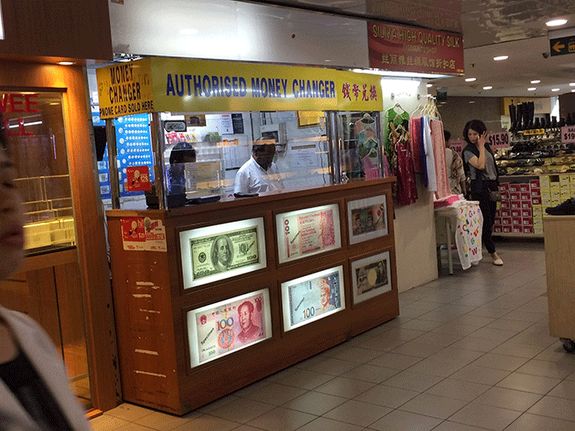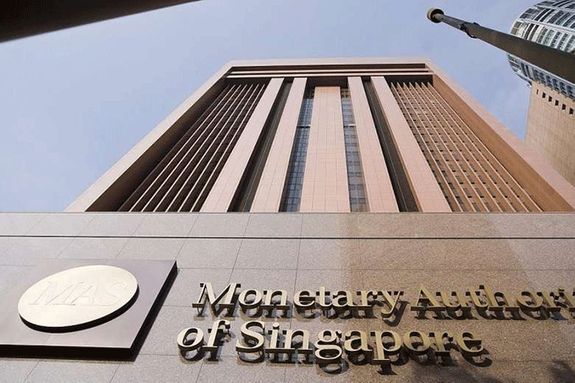A Tough Road Lies Ahead For Money Changers

In the light of recent events like Brexit and the 1MDB controversy, money changers are increasingly coming under global spotlight. With the recent terrorist attacks and rising cases of money laundering, authorities are tightening the regulations imposed not just on banks and financial institutions, but on money changers as well in a concerted effort to curb terrorist funding and money laundering. In a recent article, Raffles Money Change (RMC), a Singapore-based money changer has been placed under scrutiny after its alleged role in the Malaysian 1MDB scandal by the Monetary Authority of Singapore (MAS) . This of course, does not bode well for money changers, as it can be expected that the MAS may further reinforce its efforts of clamping down on suspected money-laundering schemes. Money changers who do not strictly adhere to the standards can risk having their licenses revoked or/and face hefty fines and punishments. So how can money changers steer clear of trouble and protect themselves, and what can money changers expect in the future?

Firstly, as per regulation, money changers have to constantly be on their toes against suspicious transactions and questionable activities. This is easier said than done, as it is not easy to cross-check every detail about customers and the nature of different transactions. In the 1MDB investigation article by the Straits Times, it was mentioned that MAS’ probe of financial institutions had revealed “extensive layering of transactions and subterfuge aimed at disguising the nature of certain activities and fund flows. In some instances, shell or unauthorised companies domiciled in various jurisdictions were used to conceal the true beneficiaries of the funds”. It can be difficult to uncover the underlying intentions of the customer, especially when the money changers do not have sufficient experience and training. Under the regulation of the MAS, money changers are required to go for the regular anti-money laundering and counter terrorist financing training courses to keep in touch with the latest compliance issues and changes. Money changers can expect more details and content to be covered in future training so that they can detect any shady activities during the transactions. Perhaps, the MAS may tighten the requirements for obtaining or renewing the money changer license in the future to uphold greater standards in compliance.

Besides educating themselves through training, money changers should diligently enforce the Know Your Customer procedure to exercise proper screening. There needs to be greater emphasis and priority when it comes to screening and record-keeping over making hasty transactions. Under the regulations imposed by the MAS, customers who exchange more than SGD$5,000 in the transaction would have to show proof of identification, while the money changers have to record the person’s details for legal purposes. Money changers also have to keep tabs on the behaviour of the customer and inform the authority about the matter should such case arise, even if the transactions do not proceed. This is to protect the money changer’s well-being and prevent their unwitting involvement in any illegal activities.
Yet, there needs to be a fine balance between sustaining their business and performing more stringent checks on every customer (who exceeds the trigger amount for record keeping). RMC might have compromised on these checks and procedures to earn more profit from greater volumes of transactions. Despite the educational efforts of the MAS, the RMC money changer failed to identify suspicious beneficiaries and to verify the authenticity of remittance instructions. RMC failed to assess if a remittance activity was consistent with the profile of the customer. The alleged funding of US$12.8 million which went through the Singapore money changer is a testament to the lack of proper KYC checks and more could have been done on their end to avoid being dragged into legal troubles. In the long run, it is better to spend more time and effort on the screening process than handling the transactions themselves, since money changers may incur huge penalties once found guilty of breaching any compliance requirements.

Compliance issues are not the only challenge money changers have to face. Besides remaining vigilant, money changers have to be up to date with the latest news, in light of the ongoing Brexit and recent global currency fluctuation. Just being asleep at the wheel for a short while can cost money changers huge losses, and they cannot simply follow the spot-rate blindly to update their rates, without also being aware of the bigger global issues driving these market fluctuations. However, putting RMC and the 1MDB saga aside, it is unfair to say that the MAS efforts in public education and tightening the laws has gone down the drain, as a recent local money changer’s intervention successfully foiled a $25,000 scam. A tough road lies ahead for money changers as the relevant authorities may impose more stringent compliance requirements to tackle more of such lapses in the future. With so much on their plates, being a money changer is not an easy job indeed, but professional software tools like Biz4x can help money changers perform better background checks on their customers and avoid losing their license and ultimately, their livelihood.




